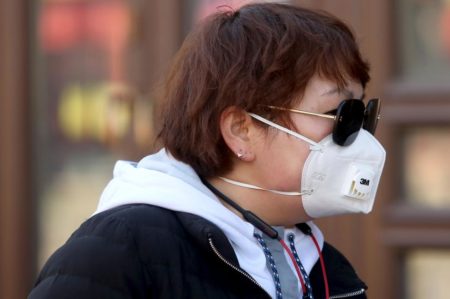February 28, 2020 – The coronavirus is revealing a lot about our contemporary 21st-century world. The mix of responses to the viral outbreak is telling. In the autocratic regime of the People’s Republic of China, one would have thought that the COVID-19 outbreak would have been handled with the same efficiency that characterizes China’s economic revolution of the last thirty years. But it is hard for an authoritarian regime to allow weaknesses to show. Controlling the message at the beginning was more important than controlling the virus. Some have praised China’s lockdown of Wuhan and Hubei Province shortly after the outbreak. But in fact, the so-called cordon sanitaire China established turned out to spring so many leaks that we are now seeing the disease emerge in 50 countries.
In December, when China first saw the signs emerging of a new viral respiratory illness, controlling the message seemed to be more important than transparency. The result was the public could take little in the way of preventive measures to stop COVID-19 from spreading. At the beginning, human-to-human transmission was unknown. But it soon became apparent when health workers became infected.
Early on the Chinese authorities claimed the infection was occurring only in older patients with underlying conditions. But now we know that those most severely impacted by the disease were between the ages of 25 and49 with more than two-thirds having no underlying conditions. And when China finally quarantined Wuhan and Hubei Province it was almost one month after the first noted COVID-19 report, and 5 million had left the city to travel throughout China and the world. Without investigative journalists and active democratic opposition, the Chinese bureaucracy held back vital information until the cat was out of the bag.
The disease soon found new significant outbreaks on a quarantined cruise ship tied up in Yokohama harbour, in a city in South Korea, in Qom, Iran, and in Northern Italy. COVID-19 fears have caused world stock markets to plunge, will likely cancel the Hajj, the annual rite of passage for Muslim pilgrims to Saudi Arabia, is closing tradeshows all over Europe, and may cause the cancellation of this summer’s Tokyo Olympic Games.
So China’s closed political system has led to unnecessary deaths, some 2,788 as of today, 44 in the last 24 hours which represents a decrease. Worldwide, more than 2,800 have died and 83,000 are infected (78,900 in China). The World Health Organization (WHO) has yet to make the call of pandemic although the U.S. Center for Disease Control and Prevention has indicated that two of the three criteria to label it so have been met. As we stated earlier, COVID-19 is now in 50 countries and on every continent except Antarctica. Africa has reported its first confirmed cases. California yesterday reported 33 new infections. Italy has exported 24 cases to 14 countries, and Iran has exported 97 cases to 11 countries.
What amazes me is the infighting between various health authorities to define COVID-19 as either an epidemic or s pandemic. The difference between the two terms is nuanced. An epidemic usually is associated with a single outbreak that remains localized, think outbreaks of cholera because of local water contamination. But pandemics are diseases that go global. By that definition, COVID-19 is a pandemic.
Toronto is part of the story now. The city has a sizable Chinese population where the reaction to COVID-19 has varied from anxiety to meltdown. In today’s Toronto Star, interviews with Chinese businesses in the downtown core indicate a significant decline in traffic. It appears the local Chinese community is entering lockdown even though Toronto has seven confirmed cases with one of those originating from a person who became infected when traveling to Iran, not China. Yesterday the first confirmed human-to-human transmission in Toronto occurred between a husband and wife. There is a run on hand sanitizer in Toronto drugstores with many reporting they are sold out. The Ontario government is advising us to stock up on food items just in case we have to self isolate should COVID-19 spread.
The impact of the virus goes beyond those infected and those who have succumbed to it. It seems that the virus has infected global markets as well. World stock markets are being battered by fears that the pandemic will affect global trade and supply chains. Chinese factories have experienced prolonged shutdowns in the last couple of months and with the nation a prime supplier of the world’s manufactured goods the markets have plunged wiping out the gains since the beginning of the year. China is hoping in the next month, as new case numbers for the disease begin to drop, that it can restart its economy and begin to bring some calm to world markets. But should COVID-19 continue to see infection numbers and deaths rise, then the virus will have not only killed thousands but will have caused a global recession.
Could this outcome have been different? If the disease first emerged in a democratic country with an investigative press and transparency from health authorities I don’t believe we would be seeing 83,000 infected and 2,800 deaths.
















